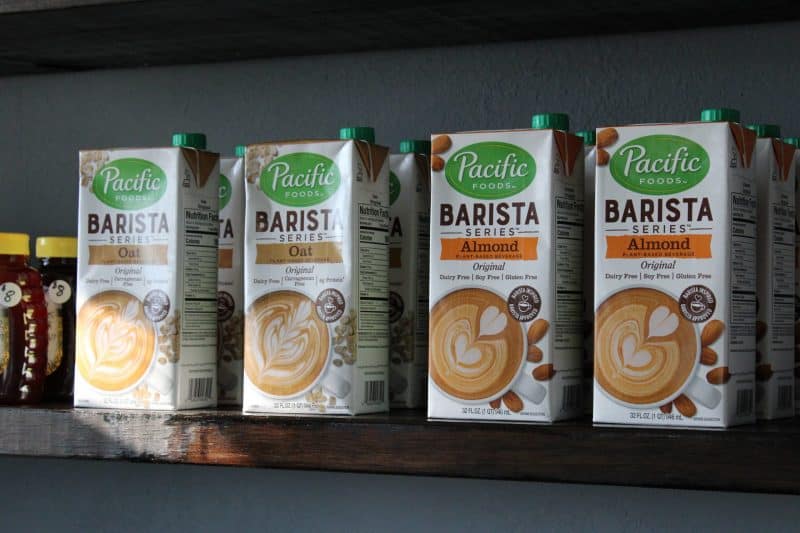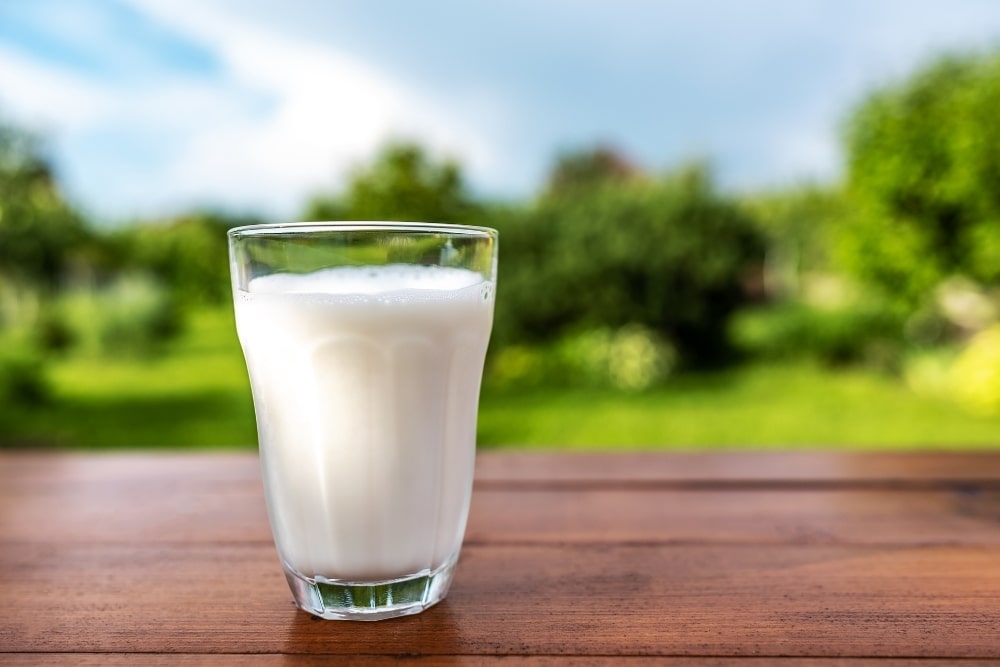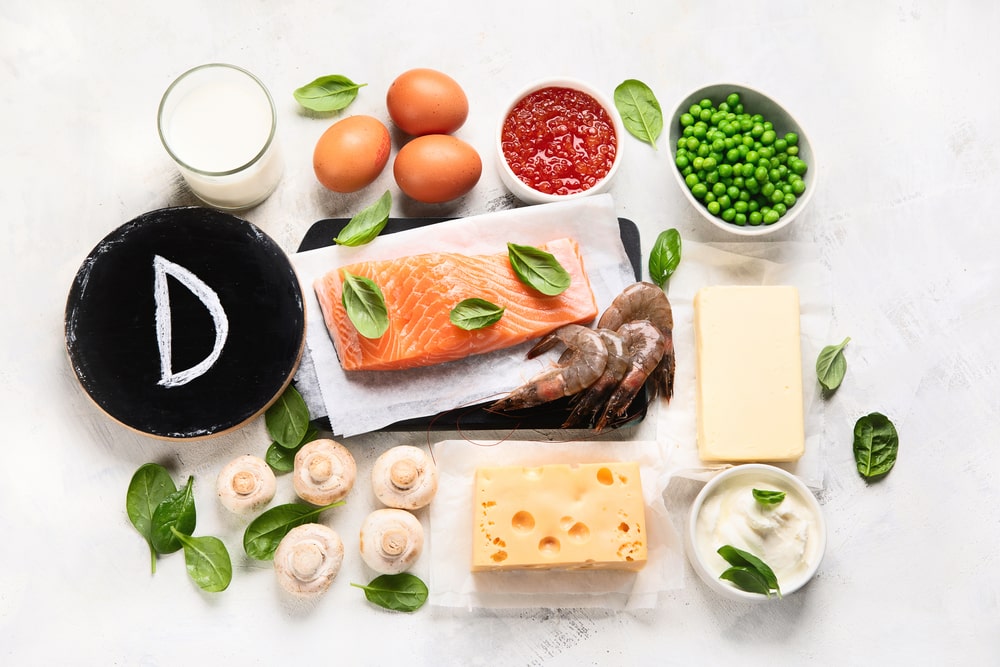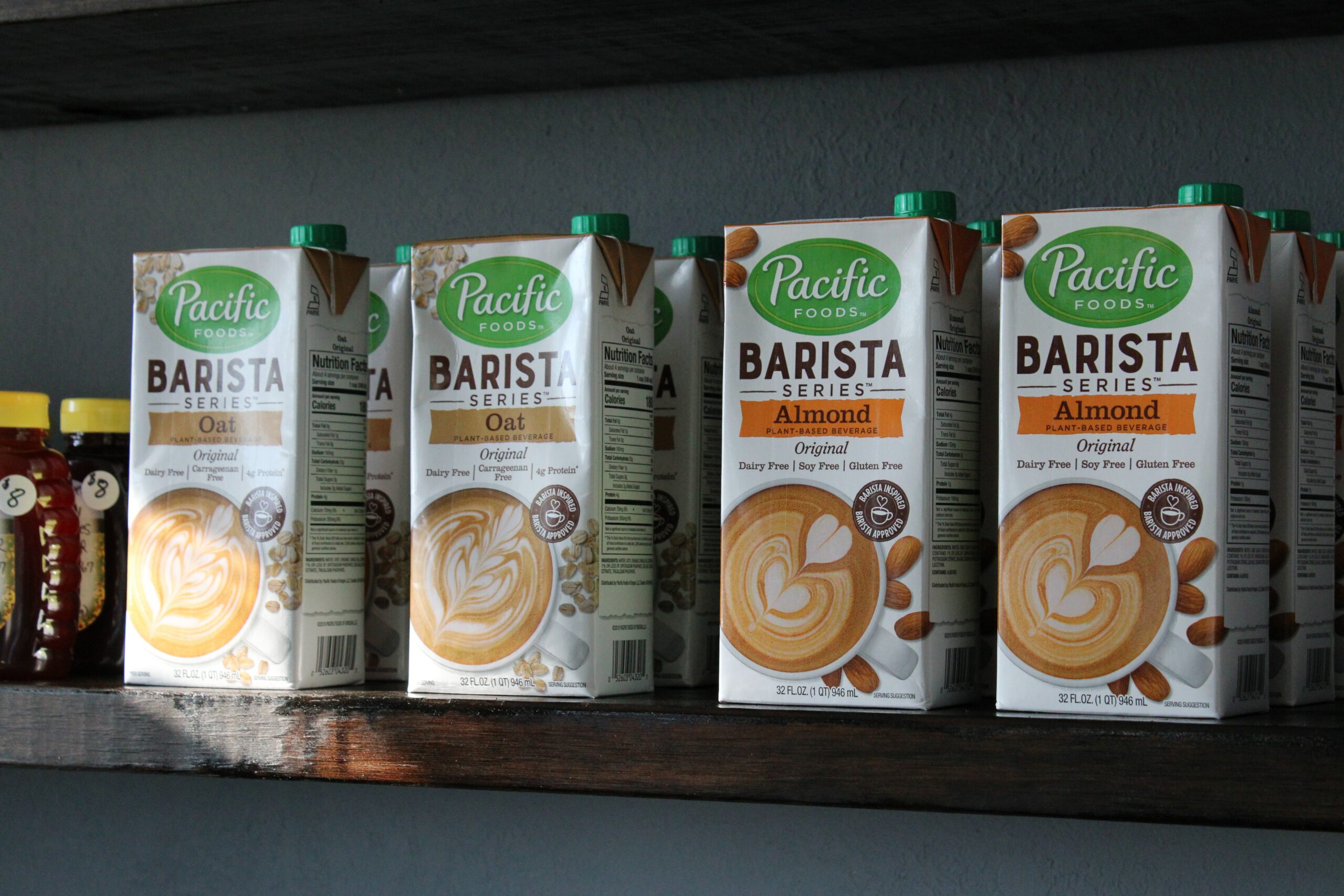Almond milk doesn’t have lactose in it, which babies under a year old are not supposed to have. It’s packed with vitamins and nutrients. But, is it safe to give babies almond milk? It’s not recommended for babies under one year old.
Babies Under One Year Old Need Breastmilk Or Formula
Children under one year old should not have almond milk, but it’s not because it’s dangerous.
Instead, children in this age range should not have almond milk because they need the vitamins and nutrients that are found only in breastmilk and formula.
This helps them grow and develop at a healthy rate. Without it, infants are at an increased risk of being developmentally delayed.
Giving Babies Other Things Can Put Them At Risk For Nutritional Deficiencies
When babies are hungry, they need formula or breastmilk. Giving them anything else in their bottles, such as water or almond milk, can put babies at a risk for nutritional deficiencies.
This is because babies get all of the nutrients they need from their formula and breastmilk.
When their stomachs are full of water milk or almond milk, babies do not drink as much formula. That means they are not getting the vitamins and nutrients that they need.
Babies Can Have Small Amounts At Six Months
Pediatricians recommend that babies do not have anything other than formula or breastmilk until they are at least six months old. After that, it’s safe to introduce first-stage baby foods to your little one.
At this age, you can also give them small amounts of things like water and almond milk in a cup. However, make sure that you limit these amounts.
You don’t want to give them so much that they are not drinking enough formula or breastmilk.
Using Almond Milk Instead Of Cow’s Milk
View in gallery
Most parents that would like to give their little ones almond milk would prefer to substitute cow’s milk. This could because they are vegan or perhaps their little one has a milk allergy. There is nothing wrong with this idea.
Almond milk is packed with vitamins and nutrients that can benefit your baby. However, there are some key vitamins and nutrients that it is lacking when it is compared to cow’s milk.
This is why substituting puts your baby at a higher risk for nutritional deficiencies. You’ll want to make sure that you know which vitamins to include in their diet, and where to get them from to keep your little one healthy.
Almond Milk Has Fewer Calories
While that might seem like a great thing, your baby needs calories. Everyone does. A cup of almond milk that is unsweetened only has about forty calories compared to the 150 that are in cow’s milk.
It’s recommended that a one-year-old have approximately 1000 calories per day. If your little one isn’t getting enough calories in per day, consider these ideas:
- Pediasure (this worked wonders when my littlest wasn’t eating enough due to her ADHD medicine)
- Offer higher calories foods first
- Consider offering higher calories fruits and vegetables, like sweet potatoes and bananas
- Lentils are a great vegan option for more calories
- Just 1/8 cup of avocado provides almost 50 calories
Another great idea is to mix foods together to increase both the nutritional value and the number of calories.
For example, mixing avocado with mashed bananas is a snack that most babies love, and it’s packed with nutritional benefits. Snacks like this are also a great idea for vegan babies.
Almond Milk Has Almost No Carbs
View in gallery
Just like calories, our body needs carbs. We use them for energy. Your one-year-old baby more than likely needs about 90 grams of carbohydrates per day.
The one gram that you can get from a cup of almond milk is not going to help reach that goal. Keep in mind that this is a rough estimate.
To calculate exactly how many carbs your little one needs, check out this website. These foods are healthy, and higher in carbs to help you meet your baby’s nutritional needs:
- Oats
- Bananas
- Sweet potatoes
- Oranges
- Blueberries
- Apples
Most fruits are higher in natural sugars and carbohydrates. This is why they aren’t recommended for a low-carb diet. However, they are a great idea for making sure that your baby is healthy and has the carbs that they need.
Almond Milk Has 1/4 Of The Protein In Cow’s Milk
This is another area where you’ll need to compensate for the nutrients that aren’t in almond milk. Protein is important for the body to grow and repair itself.
It’s recommended that one-year-old’s have at least eleven grams of protein a day. Once your little one hits their toddler years, they will need thirteen. Other foods that are high in protein include:
- Eggs
- Using cow’s milk for cooking adds protein to the meal
- Chicken breast
- Greek yogurt
- Fish
- Seafood
- Lean beef
Unfortunately, you’ll find that most of those are animal products. While animals provide us with a great source of protein, that’s not ideal for vegan families. Other sources of protein if you’re going vegan include:
- Beans
- Broccoli
- Tofu
- Lentils
- Chickpeas
- Green peas
The above vegan foods are also great if you have a little one that cannot tolerate gluten or lactose as well.
View in gallery
Natural Almond Milk Does Not Have Any Vitamin D, But Most Cereals Do
Most kinds of milk, such as whole milk, are fortified with Vitamin D before they hit the shelves. There are versions of almond milk that are also fortified with Vitamin D to make sure that people get their daily recommended amount.
However, this isn’t always the case. I use almond milk that is not sweetened or fortified with anything.
Thankfully, you don’t have to stray away from being as natural as possible with your food choices to get your vitamin D. Supplements are a great source of vitamin D, but often aren’t recommended for little ones.
Most infant cereals are fortified with Vitamin D. Once your little one gets older, you’ll quickly notice that there are a lot of foods on the market that have an additional dose of vitamins and nutrients in them.
Sunshine Helps You Naturally Produce Vitamin D
Vitamin D is often referred to as the sunshine vitamin. This is because our skin contains a type of cholesterol that will convert to vitamin D when exposed to sunlight.
It’s important to keep in mind that this means exposure to UV-B radiation from the sun. So, your little one needs to be in the sunlight without sun protection to get vitamin D this way.
Those with darker skin tones will need more time in the sun because the melanin in the skin prevents the sun from getting to the cholesterol to make Vitamin D.
Taking your baby outside is a great start, but you need to make sure that they are not wearing clothing that protects them from the sun. Do not sit out in the sun long enough for them to develop a sunburn, either. There needs to be a nice balance.
Open The Windows
The glass that is used to make windows provides a filter for the UV rays from the sun. This is why you can sit in front of a window to enjoy natural light without getting a sunburn.
Unfortunately, that also means that it isn’t going to help you produce Vitamin D, either.
Once you open the window, you remove the filter so the UV rays can reach the skin. This is a great way to make sure that your body can produce vitamin D.
View in gallery
Vitamin D Rich Foods
The further you live from the equator, the harder it is the get the sunlight that you need to produce an adequate amount of vitamin D. Fortunately, there are plenty of foods that can help your little one reach the daily recommended amount.
- Tuna
- Oysters
- Shrimp
- Mushrooms
- Egg yolks
Mushrooms and fortified foods are the best source of vitamin D for vegan families. Most of those that choose a vegan lifestyle opt for mushrooms and sunlight as a source of vitamin D.
FAQs
Can I give my six-month-old almond milk?
It’s recommended that babies do not have milk of any kind until they are a year old. It should never substitute breastmilk or formula.
However, it’s perfectly safe to give your baby a small amount of almond milk as they transition into the world of solid foods. Make sure that it is not used as a replacement to avoid nutritional deficiencies.
Can babies have almond milk in food?
Yes, they can, but wait until they are a year old. Before they hit that one-year mark, opt for formula or breast milk instead. Once they have their first birthday, you can give them almond milk.
Some babies prefer almond milk to cow’s milk! It’s packed with nutritional value, and most almond milks are fortified to make sure that they help babies be healthy.
Can I mix almond milk with baby cereal?
It’s not recommended to use almond milk, or any milk until your baby is one year old.
However, if you’re in a pinch and wind up with no formula, you can use a small amount of almond milk. I did this, and nothing bad happened to the little one. Try your best to avoid that situation, though.
View in gallery
In Conclusion
You should not use almond milk as a substitute for breast milk or formula before your baby is one year old. This can cause severe nutritional deficiencies.
However, once your baby is one, it is perfectly safe to give them almond milk. If you don’t have regular milk, and need something to give the baby or are curious if they will like it, a tiny bit once they are six months old won’t hurt.







